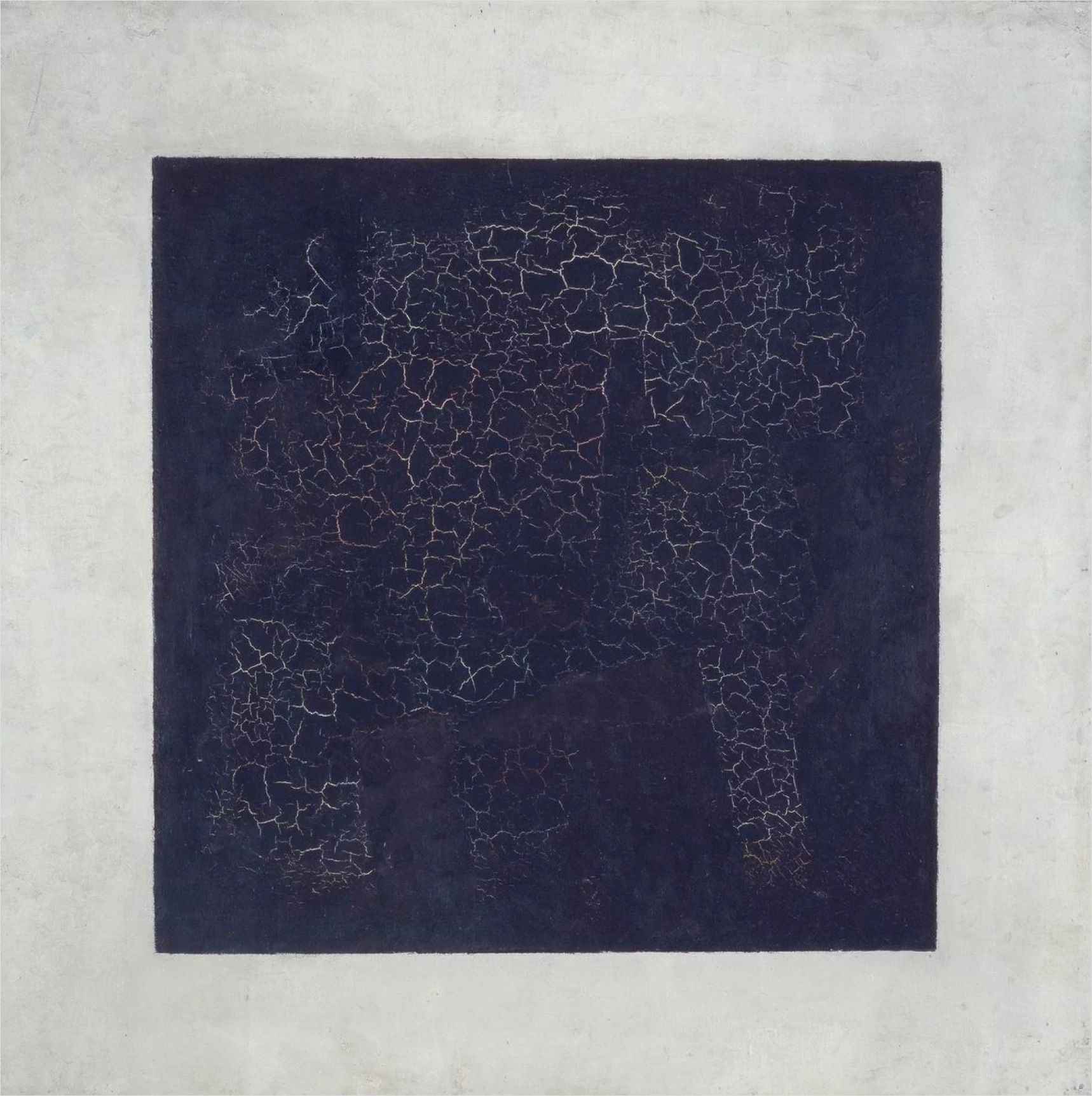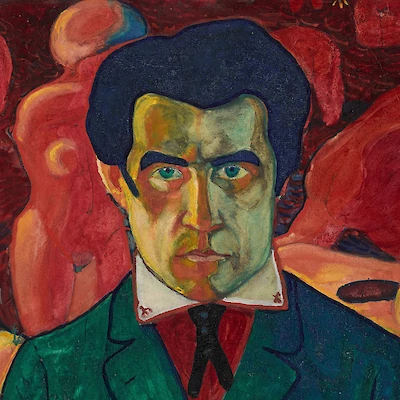

Kazimir Malevich
"Art does not need us, and it never did"
1879 – 1935[Editor’s note: In 1920, Russia was a tornado of anarchy and change. A few years before, Tsar Nicholas II had abdicated the crown, and the Soviet Union was growing from the chaos that followed. Kazimir Malevich’s writing brings us a view of the revolutionary mindset from the inside. This article was written for Moscow’s Second Free Art Studios student magazine — which was run by his former student Sergei Senkin. Malevich calls for young artists to kill the “venerable old men” of classicism — a move too extreme for the David Shterenberg, the head of the Fine Arts Department, who had the magazine burned.]
May the downfall of the old world of the arts be etched on the palms of your hands.
Long live the creation of the new, and down with painterly culture — an unnecessary aesthetic sauce.
All the efforts of painting were directed towards the creation of a new form of structure. Architecture and sculpture have suffocated beneath the coffin of classicism. The path of painting when it has become extinguished as such is clear.
Through the non-objectivism of the color plans of Suprematism to a new Suprematist construction of the objective world. The youth of the world has arrived.
Now we can see how the creative form moved under the yoke of deformed meaning of past ages We have before us the exhibition of the new art; these are not aesthetic glossy canvases but the path of painting, of movement, of light towards the objective world. Observe the movement of the new as you would the processing of ore or cotton at factories and plants. Here is the ore, but here is the brass, the smelting pit, the form, and the object.
Today the painter has pointed to the new form. From now on the painter no longer works in the tail end of events; he doesn't record in little sketches the drama of forces; the artist is as dead as a tattooed Papuan. The inventor of form appears as the ruler of the world. There are no arts as the inventions are beautifully logical, they need not be embellished nor beautifully described; nothing will change as a result of descriptions and no art will change the world. It will be changed by the almighty economic being. And so, create by the plumb of economy; this is the eternal revolutionary plumb of the inventor. Hence, the question and the answer.
Time; construct canvases; from the direction of these canvases shall take flight plans for new constructions How queer the still-lifes of images on the walls of the new world of constructions.
Imagine Shishkin’s landscapes on the walls of a zeppelin or Cezanne’s pears. Imagine painterly culture on submarines. From whose canvases shall fly the plans for the new constructions?
The innovators of the “economic-grub blessings” of rights and human freedom have arrived at the communist form of creches, freeing up youth from prejudices and oppression; creative forces are liberated; from this it is clear that it must be new; there is no creativity when the fossilized obelisk is erected on the square. We should not resemble our fathers. Their faces, palaces, and temples may be splendid a thousand times over but our new meaning will not inhabit them We will build our own, our new world and thus will not wear the forms of Greece and Rome; we shall not be peddlers of antiques.
The innovators of the economic conditions of life carried the banners of the red revolution, and killing the “venerable old men” liberated youth. Kill the “venerable old men” of classicism and erect the new world. Keen-ones, set up the headquarters of new structures and set up the new world without delay lest Venuses rise up from the dead on narrow lifeless streets as shall rise up Pompeian backyards, and the young shoots will suffocate.
The banner of the red Unovis has been raised and it awaits you, let us create a worldwide army of the new arts and we will overthrow the obelisks — there is no place for them on the red [beautiful] squares.
Our schools for the new currents, for in them is our youth; we are not learning to ride in Roman chariots as we have young aeroplanes and moto cars. We are not learning to sail on the ships of the old Saracens. We have submarines. We do not dispatch fast horses with parchment letters to another country, as radio towers talk with the world.
And so we are studying the new turn of events, we are following the new turn of events and Rosta informs us of the movements of the red every day and hour and we care not about Napoleon’s campaigns. We shall have a Rosta of the arts, of its movements and events and let this first newspaper be the Rosta of the arts.
However, what we, the innovators of the arts say is incomprehensible to the dwarves of the objective “old man” of the old world of pastorals and lovers of complex Verocchio. They carry their old world under the red shield and want the young world to be the guardians of the open mothers of God of Kazan and Suzdal. Oh Kiev-Cave
Monastery! Oh revered, saintly protectors of the arts. The rizas of the old sense have been torn from you and naked you are, covered in the new sense.
The faces of the saints of the Moscow Cave monasteries have been revealed by approval of the Narkompros. Idlers. The priests of the dead alley of the arts are farsighted That eccentric Tatlin wants to get money for inventing a utilitarian monument, without discovering the new sense (see new sense of the Kazan mothers— journal of the artistic life of the dead alley)
Comrades, rid yourselves of your prejudices; open the doors and come out and say: the cemetery to the old and life to the new. Set up red Unovises of the arts. Enough of obelisk tombstones on the beautiful live squares of the commune; their form is for inscriptions of funeral parlors but not for the words of the constitution of the new life Long live red art on the new squares,
K. Malevich